









发布日期:2020-10-28
制定者:
出处:
 立即收藏
立即收藏
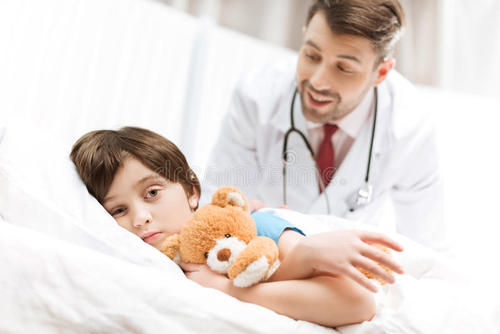
Even when armed with all the facts, deciding whether or not to take ADD/ADHD medication isn’t always easy. If you’re unsure, don’t rush the decision. Take your time to weigh the options. And if the medication is for your child, be sure to get their input in the decision-making process.
Most importantly, trust your instincts and do what feels right to you. Don’t let anyone—be it your physician or the principal at your child’s school—pressure your child into medication if you’re not comfortable with it. Remember: medication isn’t the only treatment option. For young children especially, medication should be viewed as a last resort, not the first course of treatment to try.
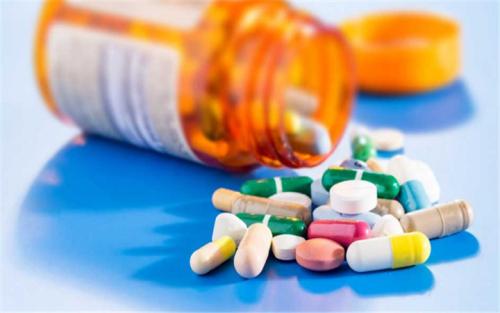
Questions to ask an ADHD specialist
Consulting with an ADHD specialist or an experienced psychiatrist can help you understand the pros and cons of medication. Here are some questions to ask:
What ADHD treatments do you recommend?
Can the symptoms be managed without medication?
What medications do you recommend and what are the side effects?
How effective is medication for ADHD?
How long will the medication be necessary for treatment?
What factors will influence the decision to stop medication?
For Parents: Helpful questions about ADHD medication
When deciding whether or not to put your child on medication, Jerome Schultz, Ph.D., ADHD expert, says to first consider the following questions:
Has my child been helped by non-medication approaches? Self-calming techniques, deep breathing, and yoga can often help children with ADHD.
Has the school tried to teach my child to be more attentive and less active?
What is the decision to put my child on medication based on? Is it the result of behavioral observations over time and in different settings, such as in school and at home?
When is my child at their best? Fishing with an uncle or playing video games? Help the physician understand how pervasive or selective the problem is.
Does my child have other conditions that can be mistaken for hyperactivity? Children exposed to toxic chemicals or who have undiagnosed learning disabilities and low-level anxiety disorder may demonstrate similar behaviors.
Source: Family Education Network
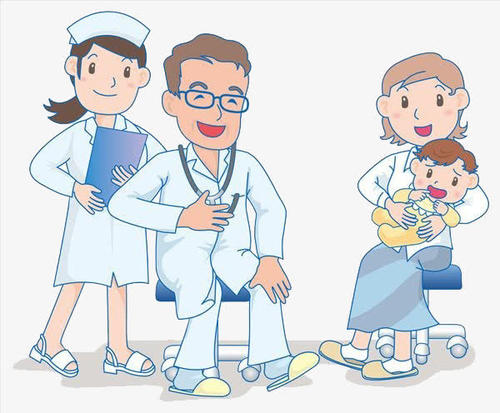
ADHD medication alone is not enough
Treatment for attention deficit disorder isn’t just about seeing doctors or taking medication. There are many ways to help yourself or your child tackle the challenges of ADHD and lead a calmer, more productive life. With the right tips and tools, you can manage many of the symptoms of your ADHD on your own. Even if you choose to take medication, healthy lifestyle habits and other self-help strategies may enable you to take a lower dose.
Exercise regularly. Exercising is one of the most effective ways to reduce the symptoms of ADHD. Physical activity boosts the brain’s dopamine, norepinephrine, and serotonin levels—all of which affect focus and attention. Try walking, skateboarding, hiking, dancing or playing a favorite sport. Encourage your child to put down the video games and play outside.
Eat a healthy diet. While diet doesn’t cause ADHD, it does have an effect on mood, energy levels, and symptoms. Set regular snack and meal times. Add more omega-3 fatty acids to your diet and make sure you’re getting enough zinc, iron, and magnesium.
Get plenty of sleep. Regular quality sleep can lead to vast improvement in the symptoms of ADHD. Simple changes to daytime habits go a long way toward resting well at night. Have a set bedtime and stick to it. Avoid caffeine later in the day.
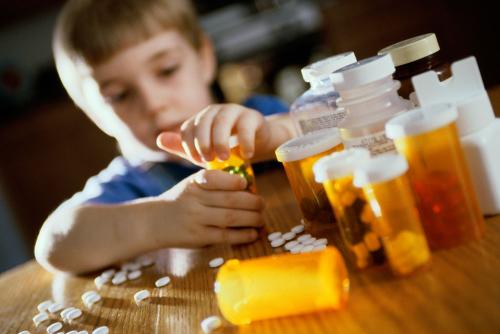
Try therapy. ADHD professionals can help you or your child learn new skills to cope with symptoms and change habits that are causing problems. Some therapies focus on managing stress and anger or controlling impulsive behaviors, while others teach you how to manage time, improve organizational skills, and persist toward goals.
Maintain a positive attitude. A positive attitude and common sense are your best assets for treating ADHD. When you are in a good frame of mind, you are more likely to be able to connect with your own needs or your child’s.
Guidelines for taking ADHD medication
If you decide to take medication for ADHD, it’s important to take the drug as directed. Following your doctor and pharmacist’s instructions will help you maximize the effectiveness of medication for ADHD and minimize the side effects and risks. Here are some guidelines for safe use:
Learn about the prescribed medication. Find out everything you can about the ADHD medication you or your child is taking, including potential side effects, how often to take it, special warnings, and other substances that should be avoided, such as over-the-counter cold medication.
Be patient. Finding the right medication and dose is a trial-and-error process. It will take some experimenting, as well as open, honest communication with your doctor.
Start small. It’s always best to start with a low dose and work up from there. The goal is to find the lowest possible dose that relieves you or your child’s symptoms.
Monitor the drug’s effects. Pay close attention to the effect the medication is having on your or your child’s emotions and behavior. Keep track of any side effects and monitor how well the medication is working to reduce symptoms.
Taper off slowly. If you or your child wants to stop taking medication, call the doctor for guidance on gradually decreasing the dose. Abruptly stopping medication can lead to unpleasant withdrawal symptoms such as irritability, fatigue, depression, and headaches.
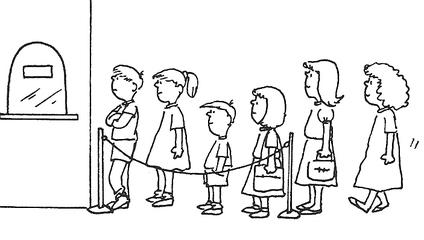
Talking to your child about ADHD medication
Many kids and teens with ADHD don’t take their medication correctly—or stop taking it without talking to their parents or doctor—so if your child is on ADHD meds, make sure that he or she understands how to take the medication correctly and why following prescription guidelines are important.
Encourage your child to come to you with any medication-related concerns so you can work together to solve the problem or find another treatment option. It’s also important to remember that ADHD medication should never have a numbing effect on a child’s energy, curiosity or enthusiasm. A child still needs to behave like a child.
Monitoring ADHD medication’s effects on your child
Here is a list of questions you should ask when your child begins medication therapy, changes dosage, or starts taking a different medication:
Is the medication having a positive impact on your child’s mood and/or behavior?
Do you think the dosage or medication is working? Does your child think the dosage or medication is working?
Does the dose need to be increased or decreased? What was the change in a specific behavior or set of behaviors that caused you to conclude that the medication needed to be evaluated?
Is your child experiencing any side effects, such as headaches, stomachaches, fatigue or sleeplessness, (or suicidal thoughts if taking Strattera)? What is the likelihood that those side effects will last? (Ask your doctor). Do any lasting side effects (if any) outweigh the medication’s benefits?
Do you or your child think a medication or dosage level has stopped working?
Source: From Chaos to Calm: Effective Parenting of Challenging Children with ADHD and Other Behavioral Problems, by Janet E. Heininger and Sharon K. Weiss.
Dealing with side effects
Most children and adults taking medication for ADHD will experience at least a few side effects. Sometimes, side effects go away after the first few weeks on the medication. You may also be able to eliminate or reduce unpleasant side effects with a few simple strategies.
Loss of appetite – To deal with reduced appetite, eat healthy snacks throughout the day and push dinner to a later time when the medication has worn off.
Insomnia – If getting to sleep is a problem, try taking the stimulant earlier in the day. If you or your child is taking an extended-release stimulant, you can also try switching to the short-acting form. Also avoid caffeinated beverages, especially in the afternoon or evening.
Stomach upset or headaches – Don’t take the medication on an empty stomach, which can cause nausea, stomach pain, and headaches. Headaches can also be triggered by medication that’s wearing off, so switching to a long-acting drug may help.
Dizziness – First, have you or your child’s blood pressure checked. If it’s normal, you may want to reduce your dose or switch to a long-acting stimulant. Also make sure you’re drinking enough fluids.
Mood changes – If medication is causing irritability, depression, agitation, or other emotional side effects, try lowering the dose. Moodiness may also be caused by the rebound effect, in which case it may help to overlap the doses or switch to an extended-release medication.
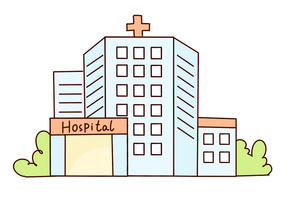
If troublesome side effects persist despite your best efforts to manage them, talk to your doctor about adjusting the dose or trying a different drug. Many people respond better to the long-acting or extended release formulations of ADHD medication, which build gradually in the bloodstream and then wear off slowly. This minimizes the ups and downs caused by fluctuating medication levels and causes less of a rebound effect, where symptoms return, often worse than before, as the drug wears off.
如何决定是否服用多动症药物
即使基于对多动症药物的一定了解,决定是否服用多动症药物也并非易事。如果您还没有考虑好,请不要急于作出决定,应对此问题进行仔细衡量。若是为您的孩子进行用药权衡,那么请务必使孩子本人参与其中,共同考虑。
首先需要强调的是,请相信您的直觉,做您所认可的决定。不要让任何人——无论是主治医师还是孩子的学校校长——在让您感到不适的情况下强迫孩子服药、进行强制性药物治疗。请您牢记:药物不是治疗多动症唯一且必须的选择。尤其是对年幼的儿童,药物治疗应被视为最后的手段,而非治疗中的首选方案。
可咨询多动症专家以下问题
通过对多动症专家或经验丰富的精神病学家进行咨询与沟通,可有效帮助您了解药物疗法的利弊,以下是一些具体问题:
您推荐哪些治疗多动症的方法?
多动症的常见症状在没有药物治疗的情况下可以得到控制吗?
您推荐服用什么药物?有什么副作用?
药物疗法对于多动症的治疗效果如何?
药物治疗的周期是多长?
什么情况下应停止用药?
以下所介绍的内容,是针对患儿家长的,据多动症专家杰罗姆·舒尔茨博士称,当您在决定是否让孩子进行药物治疗时,首先应从以下几方面进行权衡:
孩子此前是否接受过非药物治疗?(鉴于自我平静技巧训练、深呼吸与瑜伽等通常对多动症儿童有一定帮助)
学校是否教授孩子如何更专心、减少不必要的小动作?
孩子采用药物治疗的理由是什么?这些缘由是否是基于不同环境下(包括学校与家庭等)、不同时间段孩子的表现?
孩子什么时候表现较好?是和叔叔一起钓鱼时还是打电子游戏时?这类生活化表现对于医生制定治疗方案极为重要。
孩子是否确定患有多动症,还是与多动症较为类似的其他疾病?鉴于接触有毒化学物质或患有未确诊的学习障碍与轻度焦虑障碍的儿童也会表现出类似多动症的病状,因此需要进行确诊。
仅靠药物治疗是远远不够的
多动症的治疗不仅取决于医生或用药,还有很多其他的方法可以帮助患者有效应对多动症的挑战,过上更平静且幸福的生活。借助正确的技巧与方法,患者可以靠自身在一定程度上控制病症。即便是采用了用药治疗,健康的生活方式与习惯等可帮助您降低服药剂量或种类。
定期锻炼。运动是减少多动症症状最有效的方法之一。体育活动促进大脑的多巴胺、去甲肾上腺素和血清素水平——所有这些都会影响注意力。试着走路、玩滑板、徒步旅行、跳舞或做一项你喜欢的运动。鼓励您的孩子放下电子游戏,到户外去玩。
饮食健康。虽然饮食与多动症没有直接关联,但食物对于人体情绪、精力水平等有极大影响。建议在饮食中添加更多的-3脂肪酸,确保身体得到足够的锌、铁和镁。
睡眠充足。有规律的高质量睡眠可极大地改善多动症症状。
心态良好。积极的态度对于多动症的治疗也极为重要。辅之以一定的行为管理或组织技巧,帮助患者提升情绪管理能力。
多动症药物指南
若您决定采用多动症药物治疗,首先应做到谨遵医嘱服药。遵循医生与药剂师的指导将帮助您最大限度地提升多动症药物的治疗效果,并同时将副作用与风险降至最低。以下是一些用药安全建议:
了解处方药。了解患者所服用的药物的所有相关信息,包括其潜在的副作用、服药频率、特殊情况与忌讳,如不可与非处方感冒药同时服用等。
保持耐心。找到合适患者的药物与用药剂量是一个反复试验的过程,这一过程基于一定次数的试验,加以与医生的充分交流。
刚开始的剂量不可过大。最好从低剂量开始尝试,然后再逐步增加,最理想的状态是通过最小剂量达到最优疗效。
监控药物疗效与反应。密切关注药物对患者的情绪与行为所产生的影响,若出现任何不良反应应及时与医生沟通,对用药或剂量进行相应调整。
对于药物剂量的变更应循序渐进。若希望停止用药,则应向医生寻求停药指导,如果突然停止用药则可能会导致病情恶化或产生其他病症,如易怒、疲劳、头痛或抑郁等。
和您的孩子介绍药物,使其对所服药物有充分的认识
许多患有多动症的儿童与青少年没有正确服药,或是在没有和他们的父母或医生沟通的情况下就擅自停药,这对其病情有极大危害。因此,若您的孩子正在进行用药治疗,请确保其了解如何正确服药,以及遵医嘱的必要性与重要性。
鼓励孩子对病症或药物提出疑问,这样对于治疗十分有益。与此同时,多动症药物治疗不能以遏制孩子的精力、好奇心或童心为代价,孩子的天性不能受其破坏。
监测多动症药物对患儿的影响
在孩子开始采用药物治疗、改变用药剂量或更换服用药物时,您应该对以下问题进行思考:
此种药物是否有效改善了孩子的情绪或行为?
您认为此药或现用剂量是否产生疗效,孩子对此问题与您所认为的是否一致?
现用药物的剂量是否需要更改?是什么原因使您对药物用量产生疑虑或想要更改?
患儿用药后是否出现了如前文所提到的种种症状(副作用)?咨询医生相应的副作用可能会持续多久,是否到了需要停药或换药的程度?
您或患儿是否认为此种药物或现用剂量疗效甚微?
如何应对副作用
大多数儿童和成人在进行药物治疗时多多少少都会出现一些副作用。有时,副作用会在服药的前几周自行消失,您也可以通过一些简单的方法来消除或减少不良反应,常见的不良反应包括:
食欲不振——针对此问题,您可以每天吃一些健康的零食,等到药物作用消失后再吃晚餐。
失眠——如果入睡困难并影响了患者的正常生活,可以试着在原服药时间的基础上进行提前。如果您或您的孩子正在服用兴奋剂药物,您也可以尝试将其转换到短效兴奋剂药物。同时避免摄入含咖啡因的饮料,尤其是在下午或晚上。
胃部不适或头痛——不要空腹服药,否则可能会导致恶心、胃痛和头痛等不良反应。头痛也可能由短效药物逐渐失效引起,所以改用长效药物可能会此有所帮助。
头晕——首先应对血压进行检查,如果正常则可考虑减少剂量或改用长效兴奋剂药物,同时应保证每日足够的饮水量。
情绪变化——如果因为药物引起了易怒、抑郁、躁动或其他情绪副作用,试着降低剂量。情绪低落也可能是由反弹效应引起的,在这种情况下可考虑重叠剂量或切换到另外一种缓释药物。
如果在进行适当的自我调整与排查后副作用仍然存在,则应及时与医生进行沟通,从可调整剂量或者尝试不同的药物。部分患者对多动症药物的长效配方反应更好,这些药物在血液中逐渐起效,然后慢慢消失。这可以最大限度地减少由药物水平波动引起的不良反应,减少反弹效应。
点击查看原文
